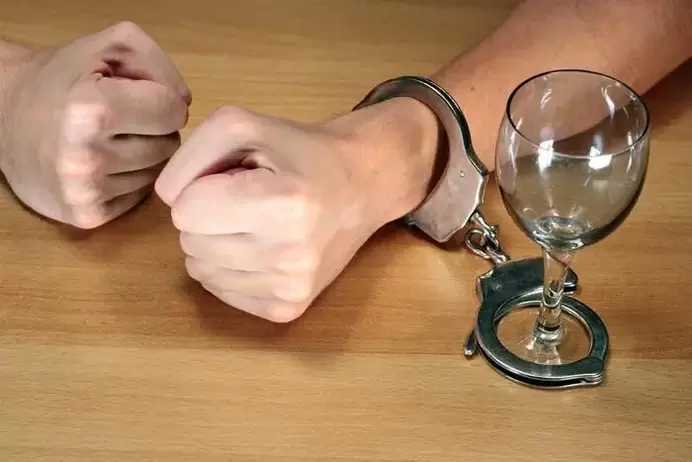If a loved one is an alcoholic, it is a serious problem for the whole family. The situation is complicated by the fact that some people do not even consider themselves ill, even by drinking regularly. How to help a person suffering from alcoholism. Is it possible to cure a relative who drinks at home? And most importantly, how to cope with the fact that the drunk denies alcohol dependence.
How to help an alcoholic stop drinking
The patient must first know that there is a disease, it must be treated. You need to want to get rid of drunkenness. Motivation is the main driver in this situation. Even having a large number of tools, opportunities, and good conditions will not lead to the desired result without a purpose and the right attitude.
Here are some key steps you can take to help reduce your alcohol cravings:
- Perception of the disease. As soon as you stop denying the existence of alcoholism, it will be easier to treat it, and you will soon get rid of the disease.
- Suppression of the desire to drink, control. You need to find an alternative to the drink. As soon as the idea of taking another dose of alcohol arises, it is necessary to take some kind of action (running, reading, walking, etc. ).
- Contrast shower 2-3 times a day. This will help strengthen blood vessels and reduce cravings for alcohol.
- For plenty of water (at least 10 glasses of water a day).
- Give up the old life. People and places associated with alcoholic past should be avoided.
As soon as the patient begins to drink less alcohol, he should undergo a complete diagnosis of the body. After that, you can move on to restorative activities (vitamin therapy, light exercise, walking, etc. ).
How to help a person who drinks alcohol
There is no universal way to help. All alcoholics are different, and everyone's environment will be different. But there are still some ways to fight addiction.
It is necessary to start treatment with a drop that cleanses the blood. You can call a doctor who will perform all the necessary manipulations. Then the whole course of treatment is planned. The main thing is that the patient wants to be treated. Then a therapy scheme is established. Or if you don't want to get rid of the addiction, you will have to change your approach to the problem. At any stage, the patient will need the help of relatives, especially if he is not in the mood for treatment.
The main recommendations for alcoholic families:
- Transfer the drink to self-service. Sooner or later he will cook, wash and clean.
- Spend your free time on hobbies, forget about exploits for the sake of your loved one.
- Do not give up on alcohol, do not give in to the temptations of an alcoholic. He must get used to the new situation in the family.
- The drinker is not responsible for the actions of his relative. He must resolve all claims, accusations and disputes on his own.
You can only help those who are waiting for it, who are open to change. You don't have to dedicate your whole life to saving alcohol.
At home

Only the initial stage of alcoholism can be treated at home. The later stages of the disease include serious mental and physical abnormalities that require medical intervention.
It is important to follow the rules of treatment at home:
- Decide for yourself how to give up bad habits. Compulsory therapy is ineffective.
- Maintain complete peace, no stress causing breakage.
- Avoid any reminders of a past life (drinking companions, places to drink alcohol) as much as possible.
- Abstain from alcohol altogether.
- Unite with your loved ones against a common problem.
- Take the medication prescribed by your doctor.
- Enhance the therapeutic effect of folk remedies.
Medications are prescribed only by a doctor. Self-medication can only aggravate the disease. Decoctions and infusions according to alternative medicine prescriptions will increase the positive effect and alleviate the symptoms of the disease. They are most effective for intoxication with alcohol decay products.
Unfortunately, according to statistics, home treatment for alcoholism is not always possible. But still there are many positive results. The main thing is not to give up, follow all the instructions, take steps in the right direction.
Disadvantages of home treatment:
- high probability of failure;
- lack of experience in treatment, professional psychological support;
- passivity, patient apathy, loss of motivation during long-term therapy.
To avoid negative consequences, serious complications, it is necessary to overcome shame, embarrassment, prejudice and other obstacles and still seek the help of a specialist. And it will now determine the severity of the disease, recommend inpatient treatment if necessary, or approve rehabilitation at home.
Stationary

Hospital treatment is anonymous. Therefore, you should not hide from problems, you should be ashamed. It is better to seek professional help immediately: narcologist, psychiatrist, psychotherapist, family psychologist.
Of particular importance is the right attitude to treatment. Alcoholism is a chronic disease that will not go away completely. Only the willpower and the desire to change one's life will help a person to be in remission for a long time without returning to the exacerbation of the disease.
Advantages of inpatient treatment:
- isolation from external influences;
- lack of access to alcohol;
- possibility of full diagnosis;
- monitor the treatment process, make timely adjustments if necessary;
- suitable conditions, unlimited opportunities for complex therapy.
Severe cases of the disease are treated only in the hospital.
Decomposition is easier and faster after giving up alcohol in a medical facility. The duration of treatment is at least 7 days.
Stages of therapy:
- Removal of toxins. The patient is prescribed drops, regularly takes tests and performs diagnostic measures.
- Based on the results of the diagnosis, the narcologist develops a treatment program involving the necessary specialists in the process.
- Drug treatment, consultation with specialists in the presence of relatives of the patient.
- Follow-up of the patient after the course of treatment.
The success of therapy depends on a number of measures. An anonymous hospital is the best place to implement them.
How to help a person stop drinking if he does not want to

Such patients themselves will never admit that they have difficulty, and moreover, they will not agree that they are addicted to alcohol. Such denial is a great obstacle to healing, a barrier to healing. If an alcoholic does not want to be treated, even the most experienced specialists will not help him. But even in this case, there are ways to help the patient stop drinking:
| Method | Description of the method |
|---|---|
| Faith | It works only in the early stages of the disease. You need to talk to the person directly, explain how his behavior looks from the outside (you can take a video, bring witnesses to the meeting). Evidence has a profound effect on the human psyche, thinking about their actions. A good discussion is reminiscent of how hangovers go. If you don't stop drinking, you can use a local alcohol sample to show what the future holds. As soon as an alcoholic agrees to receive treatment, it is necessary to support him to enhance the positive effects. |
| Jars of Hearts | He is in a difficult situation due to alcoholism. As he tries to deal with this, he reconsiders his lifestyle. This situation is created by relatives and acquaintances. Expensive, cruel, but effective way. For example, in a company, pour sleeping pills into alcohol, take the victim to the forest, take money and documents. Or take the child away from him while he is distracted by his drunken friends. |
| Medicines, folk remedies | If persuasion does not help, you can add medicines, herbal infusions to meals and drinks. The action of these drugs is based on the hatred of alcohol. In combination with alcohol, such supplements cause nausea, vomiting, changes in the taste of alcohol and a feeling of severe hangover the next day. You can use such drugs only after consulting a doctor. |
| Seek sorcerers, wizards, healers | At the heart of the treatment of alternative medicine are herbal infusions, spells, rituals, conspiracies. This method should be used with caution, because there are many charlatans around. In addition, such treatments are always expensive and often ineffective. |
| Threats | Threats can be different: losing or not finding a job, not returning home, not repaying loans. According to psychologists, it is not the most successful method. This can have the opposite effect. To intimidate a drinker, you need to know him well. |
How do you persuade someone to go for alcohol treatment? Key recommendations:
- Avoid situations of conflict, criticizing the dependent.
- Talk about your feelings about the situation, but don't blame them.
- Help find interesting alternative activities.
- Explain the loss of prestige among close circles.
- Encourage the patient to live responsibly and with love.
- Explain the importance of seeking professional help.
Believing in the power of your words and the success of your actions will help you to achieve a positive result.































